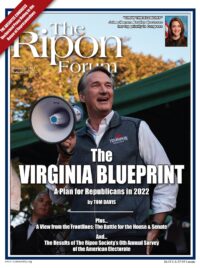
Ranked Choice Voting (RCV), also known as Instant-Runoff Voting (IRV), is often portrayed as a fresh, new way to engage disaffected voters and reinvigorate American democracy. While birthed from a real concern, its proponents’ lofty claims do not match real-world results.
RCV allows voters to rank multiple candidates rather than supporting just one. If no candidate reaches more than 50 percent in the first count, those who cannot win are eliminated and their supporters’ votes redistributed to successive choices. This process repeats for last place candidates in each round until one has a majority of the remaining votes.
Some communities across the U.S. such as San Francisco, Minneapolis, and Portland, Maine have long experience with RCV. Other jurisdictions like, Pierce County, Washington and Aspen, Colorado, repealed it after just a short time. Proponents claim that RCV guarantees the winner has majority support, but data show this often happens because RCV tabulation distorts the final vote count.
Proponents claim that RCV guarantees the winner has majority support, but data shows that this often happens because it distorts the final vote.
Less than one percent of mailed ballots are rejected in the average U.S. election, but a 2019 Maine Policy Institute analysis of nearly 100 RCV races found that, on average, “exhausted ballots” made up more than 10-times that amount. For those not familiar with the term, exhausted ballots occur when a voter does not rank one of the two final-round candidates, and their ballot is removed from the final tally.
In other words, these voters cast legible ballots, but were ultimately excluded when determining the “majority winner.”
A report by Princeton professor Nolan McCarty submitted to the U.S. District Court in Maine found that, in 15 of 98 races studied, more than 20 percent of ballots were exhausted. McCarty also found higher rates of exhausted ballots among electorates with more elderly and non-college-educated voters.
Often because of high rates of exhausted ballots, more than six-in-ten RCV winners do not earn a majority of votes cast. Some say this can be solved through voter education, but McCarty saw higher rates of exhausted ballots even among electorates with more experience with RCV elections.
Under RCV, not only must voters understand the issues and candidates on their ballots, but they must strategically plot their choices to maximize their effect on the outcome. By declining to rank every candidate or choosing to vote for less-widely popular third-party candidates, their ballots are unwillingly diluted.
In this way, RCV has its own “spoiler effect,” similar to the way in which today’s third-party voters must succumb when asked to choose one of the two major party candidates to avoid “throwing away a vote.” It is certainly no better in this regard.
The story of Burlington, Vermont highlights another crucial flaw. In 2009, a three-way RCV race for mayor pitted Progressive Bob Kiss against Democrat Andy Montroll and Republican Kurt Wright. Kiss won the election, but could have lost if more Wright voters ranked Kiss first. This would have sent Montroll to second place in the first round, giving him enough votes from Wright in the second round to defeat Kiss. Montroll lost, even though he was the “middle-of-the-road” candidate preferred over all others head-to-head. Counterintuitively, voters who ranked Wright first and Montroll second would have been better off not voting at all.
Conservatives and libertarians should also be skeptical of RCV because it requires centralized vote counting.
The following year, 52 percent of Burlington voters, among the most progressive local electorates in the country, voted to repeal RCV.
Conservatives and libertarians should also be skeptical of RCV because it requires centralized vote counting. Decentralized, local-level reporting is an important part of American election integrity. But in rural RCV states like Maine and Alaska, the secretary of state contracts with private couriers to transport hard drives of ranked ballot data to a centralized location in order to be tabulated by RCV software. This opens up the vote counting process to greater risks of fraud and mismanagement.
Indeed, these are among the reasons why Massachusetts voters, especially those in working-class areas outside the elite bubble of greater Boston, rejected RCV in November 2020. Despite out-spending the opposition nearly 3,000-to-1, RCV proponents ultimately lost by 10 points.
One thing is certain: RCV is inherently more complex and confusing to voters than the status quo, which is reflected in the level of exhausted ballots and disaffected voting blocs.
This critique should not be read as an absolutist defense of plurality voting. Systems like approval voting — which is simpler than RCV and does not require voters to either endorse a candidate they don’t like or risk being removed from the final count — may indeed serve us better in the long run.
Whichever voting system is used, it should meet some basic criteria – including making sure that casting a ballot is as easy as possible, and that every voter is assured that his or her vote will count equally toward the result.
Unfortunately, Ranked Choice Voting fails even these simple tests.
Nick Murray is policy analyst with the Maine Policy Institute.




